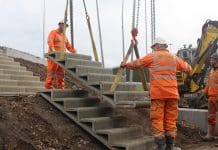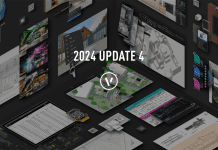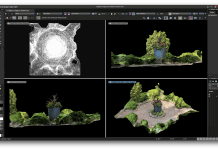Intelligent mobility and smart technology will change how we travel. Simon White, PR and Communications Manager at the Transport Systems Catapult explains
Technology has advanced significantly in recent years. In fact, the Digital Age has already dramatically changed how we live our lives, and it is now poised to create a revolution in the way we travel. However, beyond personal travel options, the opportunities the revolution will create in the built environment will come into increased focus over the next decade
By 2025, we are likely to see self-driving vehicles in regular use. These vehicles will disrupt the traditional car ownership model as vehicles become an on-demand service which fundamentally changes the design of urban environments. For instance, urban planners may no longer have to account for car parking, and architects could reuse space traditionally assigned to vehicle storage for home offices to accommodate greater home working.
Meanwhile, smart technology will increasingly manage the way we travel, combining transport modes into mobility packages which give access to the transport which best suits your circumstances. Imagine a seamless journey, planned via a smartphone app which arranges taxis, train tickets, bus routes and more – adapting the itinerary as you go based on real-time information about delays.
All you would have to do is tell your service provider where you want to go and what time you need to be there and the rest would be taken care of, using whichever transport methods best suit your needs.
Infrastructure
This will likely have a profound impact on infrastructure, particularly in urban areas. Much of the built environment is designed around current transport methods and assumptions, so a significant shift like this could have all kinds of unforeseen consequences.
Out of town transport hubs could become a new feature allowing the transition from short range to long range transport both for people and goods. Current public spaces like railway stations and airports could be transformed to allow seamless transition between different modes of transport. Even roads could end up looking completely different to the way they do now as new technologies emerge.
Intelligent Mobility
Behind the scenes, Virtual Reality and Artificial Intelligence will enable better planning and use of transport infrastructure, as well as helping to design transport hubs like stations and airports. At the Transport Systems Catapult we’re already working on technologies that will allow planners and architects to fully immerse themselves in their creations, which can then be optimised before costly real world implementation takes place.
These technologies will also improve the way we interact with transport, improving the customer experience and reducing stress. Artificial Intelligence is already bringing us personal assistants on our phones. We might find we are talking to our transport more and more.
Taken together we call these new advances in transport technology “Intelligent Mobility” – the smarter, greener and more efficient movement of people and goods. As the technology matures there is much to be gained in this new sector. The Transport Systems Catapult predicts the global Intelligent Mobility Market to be worth £900bn per annum by 2025.
A significant share of this market awaits those people, companies and nations who have the technical knowledge, entrepreneurial flair and most importantly, the skills to capitalise on this revolution in transport.
Previous investment in skills development and innovation in our leading aerospace and automotive has helped produce world-beating industries. With digital skills and transportation now converging, the digital economy is becoming synonymous with transport. However, many industries will be competing for the rare skill sets this requires, and they are in short supply – so it is vital that we begin investing in this area as a nation today.
The UK must now seize the moment to secure a pivotal role and drive global leadership in this area by investing in the development of highly skilled people who can develop new business models and new forms of transport that can truly revolutionise delivery and customer experience. The costs could be great if we don’t act now, with £50bn of industry potentially lost if we do not keep up with the skills required for this revolution.
A shared vision across industry sectors, academia and government, will be vital. Not least because this new generation of transport professionals will need to be able to work across different disciplines, including planning and building design, rather than focusing on areas such as rail or automotive if we are to gain the full benefits offered by these revolutionary technologies.
With these things in place, we can see a very exciting future in the world of transport.
You can read the TSC’s recently published Intelligent Mobility Skills Strategy at ts.catapult.org.uk/imskills
Simon White
PR and Communications Manager
Transport Systems Catapult

















